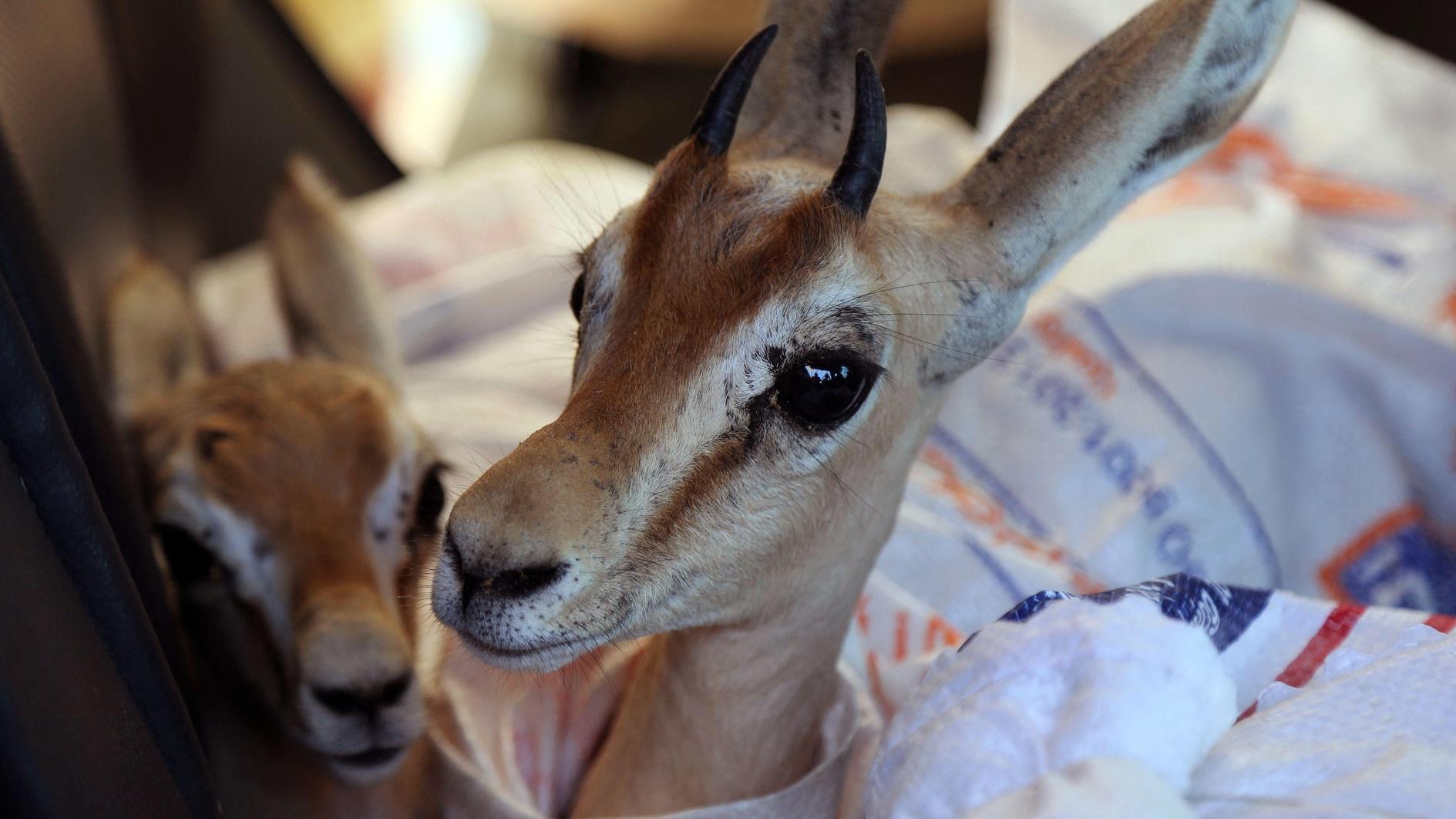Endangered gazelles find Libyan 'safe haven'
FARWA ISLAND

Cocooned in white bags and nestled in the arms of volunteers, eight young rhim gazelles, an endangered species native to North Africa, have been transferred to an uninhabited Libyan island.
Environmentalist hope their new home on Farwa island, near Tunisia, will be a haven for the vulnerable animal.
Also known as Gazella leptoceros, or simply rhim, the slender-horned gazelle lives in desert areas in Algeria, Tunisia, Libya and Egypt. But its population has declined significantly as it is a prized target for hunters.
According to an International Union for Conservation of Nature (IUCN) assessment in 2016, there were only between 300 to 600 mature rhims in the North African wild.
Environmentalists "wanted to relocate the wild animals in Farwa," a 13-kilometer-long sandbar, as part of the gazelles' conservation efforts, Mohamed al-Rabti, one of the volunteers, told AFP.
A first group of rhims was released a few weeks ago, "followed by eight individuals, including one male and seven females" on July 18, Rabti added.
As soon as they were released, the young gazelles took off frolicking before promptly disappearing behind the island's wild bushes.
The animal with long slender horns is small, nimble, and well adapted to desert life with a pale coat that enables better survival by blending into sandy landscapes.
The coloring is less effective against hunters, which for a while have been the gazelles' major predator. Equipped with binoculars, automatic rifles and powerful four-wheel drive vehicles, some go after the animals merely as a hobby.
Others hunt them for a price going as high as 5,000 Libyan dinars ($1,000) per carcass.
Gazella leptoceros has been classified in the IUCN's "Red List of Threatened Species" since 2016.
Farwa, though not their natural habitat, seems to have suited the first group of gazelles released on the island, Youssef Gandouz, an environmental activist, told AFP.
They have been "monitored with binoculars and drones and are doing very well," said Gandouz.
















